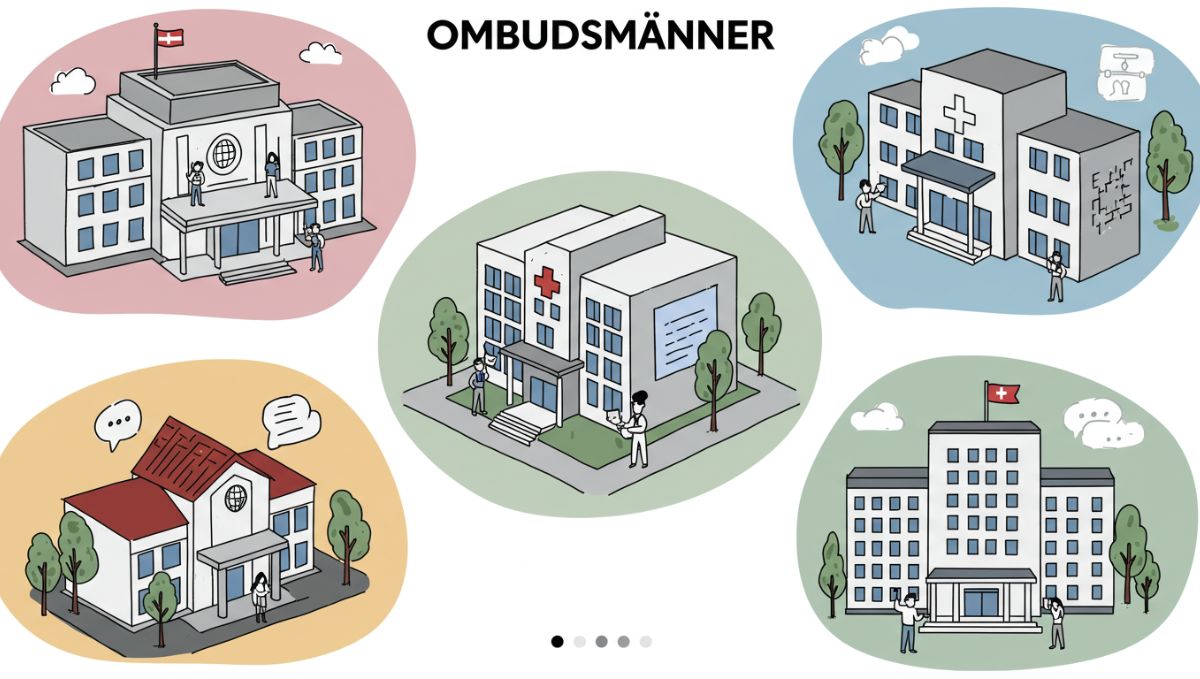The term Ombudsmänner is the German plural form of ombudsman, a role that has become increasingly important in government, corporate governance, academia, and public institutions. Ombudsmänner are independent officials or representatives who serve as neutral mediators between individuals and institutions. Their main function is to investigate complaints, ensure fair treatment, and promote transparency and accountability.
Whether dealing with citizens, employees, or students, ombudsmänner help resolve conflicts without formal legal action, often acting as a first step in a complaint-resolution process. Their presence is a cornerstone of democratic oversight and ethical governance.
Historical Background
The ombudsman institution originated in Sweden in the early 19th century, where a parliamentary ombudsman was appointed to oversee government administration and protect citizens from abuse of power. The concept quickly gained traction around the world and is now implemented in both public and private sectors across Europe, North America, and beyond.
In German-speaking countries like Germany, Austria, and Switzerland, the role is often referred to as “Ombudsmann” (male), “Ombudsfrau” (female), or more inclusively, “Ombudsperson.” Collectively, Ombudsmänner refers to multiple individuals serving in these roles, regardless of gender in modern usage.
Key Responsibilities of Ombudsmänner
The function of Ombudsmänner can vary by sector and institution, but their core responsibilities include:
1. Receiving and Reviewing Complaints
Ombudsmänner act as the first point of contact for individuals who feel they have been treated unfairly by an institution. This could include public services, corporations, universities, or insurance companies. Complaints might involve discrimination, policy violations, administrative errors, or unethical behavior.
2. Mediation and Conflict Resolution
Rather than imposing decisions like a court, ombudsmänner facilitate dialogue between parties. Their goal is to reach amicable and fair solutions through informal means such as negotiation, conciliation, or mediation.
3. Independence and Neutrality
A key feature of the ombudsmann role is impartiality. They are independent of the organization’s chain of command, allowing them to investigate without conflict of interest. This autonomy ensures credibility and trust in the process.
4. Policy Recommendations
Ombudsmänner often identify systemic issues and recommend changes to organizational policy or procedures. These insights can help institutions improve transparency, efficiency, and fairness long-term.
5. Protecting Rights and Promoting Justice
In the broader context, ombudsmänner act as advocates for justice, especially for those who may lack power or access to formal legal systems. Their work helps bridge gaps between individuals and large institutions.
Where Ombudsmänner Operate
Ombudsmänner can be found in a variety of fields. Here are some of the most common settings:
Government and Public Sector
Many countries have national or regional ombudsmen who monitor public administration, handle citizen complaints, and ensure compliance with laws and regulations. For example, Germany has multiple public ombudsman roles at the federal and state levels.
Healthcare and Insurance
In sectors where customer relations can become complex, such as healthcare and insurance, ombudsmänner help patients and policyholders resolve disputes over treatment coverage, billing, or denial of claims.
Corporations and Industry
Many businesses, especially in finance and telecommunications, appoint corporate ombudspersons to handle internal disputes, whistleblower claims, and ethical concerns. Their role supports compliance and internal accountability.
Universities and Education
In higher education, academic ombudsmen support students and staff facing administrative conflicts, grade disputes, or discrimination. They provide a safe and confidential space to address grievances.
Media and Journalism
Some media organizations have ombudspersons or reader representatives who handle complaints from the audience regarding accuracy, bias, or editorial conduct—helping maintain journalistic integrity.
Qualifications and Skills
To be effective, ombudsmänner must possess a unique set of skills, including:
-
Strong communication and listening abilities
-
Impartial judgment and ethical integrity
-
Conflict resolution and mediation training
-
Understanding of legal and institutional frameworks
-
Cultural sensitivity and emotional intelligence
Most ombudsmen have backgrounds in law, human resources, public administration, or psychology, along with specialized training in mediation or conflict management.
Ombudsmänner and Legal Authority
While ombudsmänner play a vital role in promoting fairness, their decisions are typically non-binding. They do not have the legal power to enforce outcomes like a judge or court. However, their influence is significant—especially when institutions are committed to transparency and ethical governance.
In many cases, if an ombudsman’s resolution is not accepted, individuals still retain the right to pursue legal action through formal judicial channels.
The Importance of Ombudsmänner in Society
The presence of ombudsmänner strengthens trust between individuals and institutions. By providing an accessible and impartial pathway to resolve complaints, they reduce tension, prevent legal escalation, and promote better policy and service delivery.
In a time when transparency, accountability, and ethical conduct are more important than ever, ombudsmänner serve as watchdogs, allies, and bridges between people and power.
Challenges Facing Ombudsmänner
Despite their value, ombudsmänner can face significant challenges, such as:
-
Limited authority to enforce change
-
Lack of awareness among the public about their services
-
Resistance from organizations unaccustomed to external oversight
-
Resource constraints, especially in smaller institutions
Addressing these issues requires continued advocacy for stronger institutional support, clearer mandates, and public education about the ombudsman system.
Conclusion
Ombudsmänner play a vital role in ensuring fairness, resolving disputes, and promoting ethical governance across sectors. Their work offers a human-centered approach to justice, allowing individuals to voice concerns, find solutions, and hold institutions accountable—without the high costs and complexities of formal legal proceedings.
As society grows more complex, the role of ombudsmänner becomes even more essential—not just as mediators, but as champions of trust, fairness, and democratic values in everyday life.
